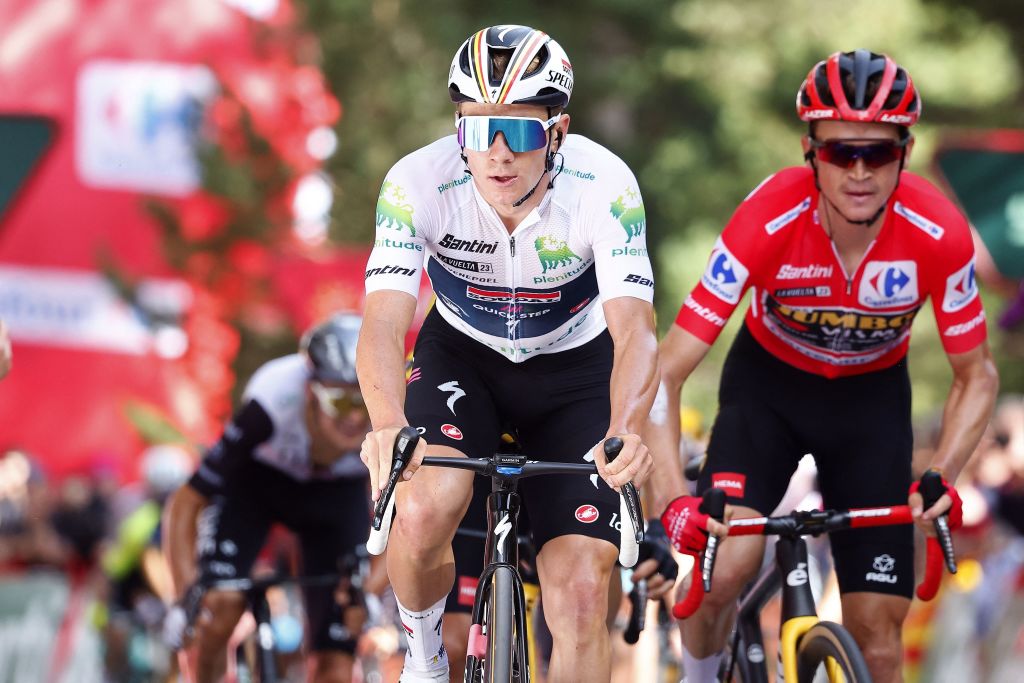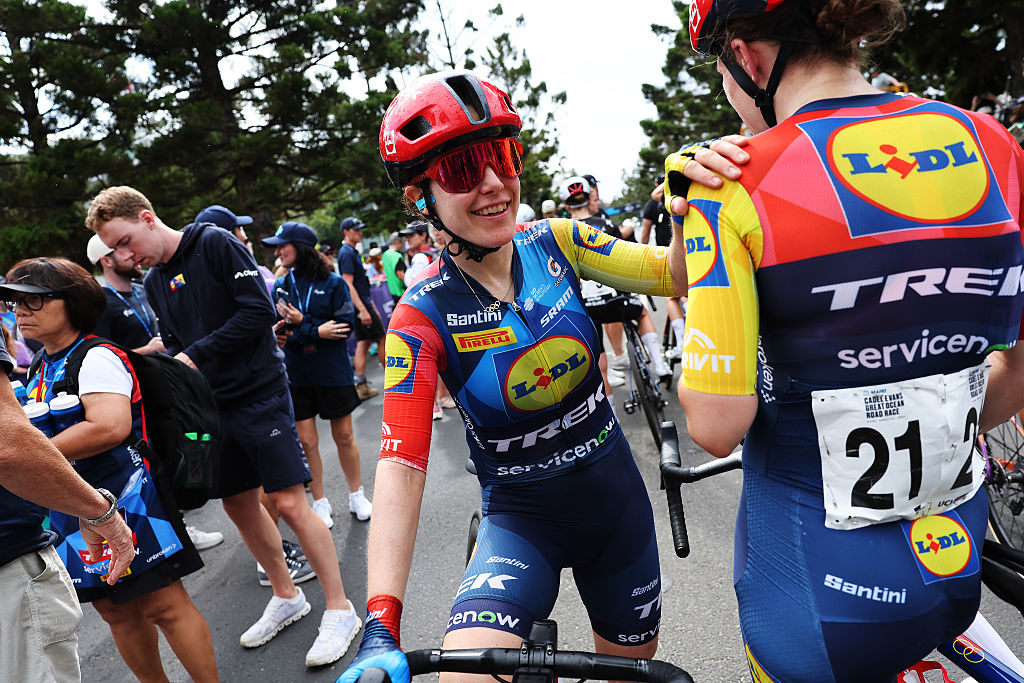Remco Evenepoel: It's good we are a bit unpredictable
Belgian says Jumbo-Visma have ‘all the cards in their hands’ at Vuelta a España

The latest race content, interviews, features, reviews and expert buying guides, direct to your inbox!
You are now subscribed
Your newsletter sign-up was successful
Defending Vuelta a España champion Remco Evenepoel has insisted that given Jumbo-Visma's strength in numbers on GC, it is only logical that he is playing more of a defensive game at times on the race’s climbs.
The fourth of nine summit finishes in this year's Vuelta, despite at Laguna Negra de Vinuesa’s testing average gradient of 8% and ramps of up to 14%, the sparks notably failed to fly between the GC favourites.
At the previous mountain top finish of Collado de la Cruz de Caravaca on Sunday, the organisation’s safety-inspired decision to take times on the ascent two kilometres from the finish effectively killed off any desire to launch all but the most minor of attacks.
But on stage 11, barring digs by outsiders Cian Uijtdebroeks (Bora-Hansgrohe) and Hugh Carthy (EF Education-EasyPost) and an almost symbolic final acceleration by Evenepoel, closely shadowed by race leader Sepp Kuss (Jumbo-Visma), even with the full climb in play, the stage passed off without any attacks.
Clad in the white jersey of Best Young Rider as he did his warm-down on the rollers when one reporter put it to Evenepoel that Jonas Vingegaard (Jumbo-Visma) had expressed surprise there had been no attacks by the Soudal-QuickStep leader, Evenepoel fired back, "That's good, it seems like we're a bit unpredictable."
“I’m not going to attack on every climb and at every opportunity. These guys [Jumbo-Visma] have three riders in the top eight. They are up there, and they have all the cards in our hands.
“So it’s not really up to us. There are still many opportunities to come. They have a super strong team for the high mountains, so it's going to be a bigger task to follow them than to attack myself. There's plenty of of time.”
The latest race content, interviews, features, reviews and expert buying guides, direct to your inbox!
Evenepoel made a similar point when explaining why he had stopped the Soudal-QuickStep team from making the running on the Laguna Negra climb after it initially seemed on the lowers slopes that they were interested in keeping a high tempo on the front. From his point of view, the Belgian squad are not the ones who need to take responsibility at the front of the GC group.
“We were in front, and some guys started to set the pace, and I told them to slow down and stay calm because it’s not up to us to take the race in our hands," he said.
"I think they were a bit too excited, maybe, but in the end, they listened to me, and in the end, we really calmed it down. It made no sense for us to make that hard pacing."
As for his final mini-sprint for the line, Evenepoel said this was not a move to try to distance the rest of the GC contenders but to be sure he stayed out of trouble.
"It's better to just go for it yourself than to be surprised from behind and end up being gapped. It wasn't much, and it was about keeping the speed high. There wasn't really a strategy behind it. I just wanted to get to the finish as quickly as possible.”
Remco's interest in staying ahead could have been something of a precautionary measure, too, to judge by his somewhat jokey response to rumours that riders are starting to fall ill because of an infection spreading through the peloton.
“People are coughing a lot in the bunch? I haven't heard or seen that yet. But then I’ll have to stay at the front, right," Evenepoel said with a wink at the TV cameras.
Yet, for all it seemed to be the easiest stage to date in this action-packed Vuelta, Evenepoel said that it had not been lacking in difficulty in the first hour when the break had yet to go. And the average speed of 46.7kph for a day that included a category 1 climb confirmed his words.
"The start was pretty fast, maybe the hardest part of the whole race, but after that, it quietened down. There’s always a bit of nervousness, but everybody [at Soudal-QuickStep] stayed on their bike, everybody stayed out of trouble," he said.
“I made it through, and things look good. If it is calm tomorrow [Thursday], I hope to be ready for the Pyrenees on Friday and Saturday."
Alasdair Fotheringham has been reporting on cycling since 1991. He has covered every Tour de France since 1992 bar one, as well as numerous other bike races of all shapes and sizes, ranging from the Olympic Games in 2008 to the now sadly defunct Subida a Urkiola hill climb in Spain. As well as working for Cyclingnews, he has also written for The Independent, The Guardian, ProCycling, The Express and Reuters.

